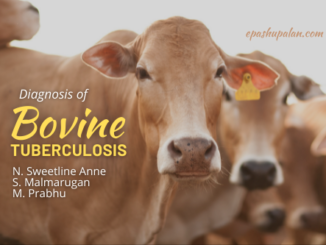There are several diseases which are found in most of the dogs and they are mainly caused by virus, bacteria or parasites. Many serious pet diseases can be prevented by vaccination. Many time dog diseases are detected late, when it become difficult to cure the diseases. There are several noticeable symptoms of the dog diseases by which one can easily know that the pet is suffering from any kind of disease for example dry nose, regular vomiting, increasing thirst, weight loss, loss of pigment etc.
1. Viral Diseases of Dog
Canine Parvo Virus: Canine Parvo Virus infection is the most common virus affection seen in dogs. It causes acute gastroenteritis in dog characterized by necrotising enteritis myocardial necrosis, diarrhoea, dysentery with melena and dehydration. It can spread through the direct or the indirect contact of the feces of the infected dogs. This disease is particularly harmful to puppies and can even lead to death of your pet. The disease is highly contagious, symptoms appear 5-7 days after exposure and may result in death of dog within 48-72 hours. So it is advisable that as soon as you find your dog suffering from this disease you must consult Veterinary doctor immediately. There is no treatment that cures the virus. Treatment is Symptomatic which includes fluid therapy, Anti-emetic and Antibacterial to control secondary bacterial infection. Vaccination against Canine Parvo Virus reduce the incidence of the disease, and yearly vaccination is advisable.

Rabies: Rabies is a viral disease of animals mainly affecting carnivores like dogs, wolves, foxes but it can be spread to most mammals including humans. It is caused by a lyssa virus of Rhabdoviridae family and characterized by encephalitis. The virus is transmitted in saliva from the bite of an infected animal. The main symptoms of the disease are drooling of saliva and moving aimlessly, eating of non food materials the paranoia, insomnia, agitation, anxiety and confusion. The remedial measure for the disease is taking of the pre-bite and post-bite vaccination of anti-rabies for both the animals as well as the human. Once clinical signs develop there is no treatment of Rabies.

Canine Distemper: Canine Distemper is considered as the worst canine disease threat to dogs all over the world. It is an infectious viral disease of dogs caused by a morbilli virus and characterized by congested lungs, nasal discharge, vomiting and diarrhea and high fever. As the disease progresses, it attacks the nervous system, causing partial or complete paralysis and seizures. The disease is highly contagious. Once infected, there is no cure for canine distemper. Treatment is supportive, dogs who recover from distemper may have nervous system through out there life. Vaccination against Canine Distemper Virus reduce the incidence of the disease, and yearly vaccination is advisable.
Infectious Canine Hepatitis: Infectious Canine Hepatitis is an infectious viral disease of dogs caused by adenovirus, characterized by necrotic lesions in liver and intra nuclear inclusions in hepatocytes and Fever (104-106°F), Vomiting, diarrhoea, Icterus and Conjunctivitis. The virus is transmitted through inhalation or ingestion, after entering the dog virus targets the liver, kidneys, eyes, and the cells lining the inner surface of the blood vessels. There is no cure, only supportive treatment which includes Fluid therapy(DNS,RL), Hepatoprotectives, B-Complex. Vaccination against Infectious Canine Hepatitis reduce the incidence of the disease, and yearly vaccination is advisable.
Canine Coronavirus- Coronavirus causes diarrhea and vomiting, and most of the time be confused for Canine Parvo Virus. The mode of infection is similar to Canine Parvo Virus i.e direct contact of an infected animal or its feces. Treatment is symptomatic which involves replacing lost fluids and controlling vomiting and diarrhea. Vaccine is available, but not widely recommended.
2. Bacterial Disease
Leptospirosis: Leptospirosis is an infectious disease of dog caused by four strains of leptospira characterized by widespread haemorrhage in visceral organs, nephritis, icterus, hepatitis and anemia. This is a bacterial disease spread in the urine of wild and domestic animals and capable of causing illness in humans as well as dogs. Symptoms include lethargy, kidney inflammation, low-grade fever, vomiting, reddening of the mucous membranes, and conjunctiva, and blood clotting abnormalities. Antibiotic with supportive therapy is effective in treatment. If there is disease in the area Veterinarian will recommend Leptospirosis Vaccinations.

Gastroenteritis: Enteritis is inflammation of stomach and intestine characterized by diarrhea nausea and vomiting, loss of appetite, abdominal cramps and pain , bleeding, or mucus-like discharge from the rectum and fever. Caused by several bacterial species mainly salmonella, E.Coli, Shegilla, etc. Antibiotic with supportive therapy is effective in treatment.
Kennel Cough: This is a respiratory disease in dogs that covers the actions of several infectious agents most commonly caused by a bacteria called Bordatella bronchiseptica and canine parainfluenza virus. Main symptom of Kennal Cough is a consistent, forceful cough. Apart from coughing, dog doesn’t feel ill and usually have a good appetite. In some dogs other symptoms like sneezing, a runny nose or eye discharge are also observed. Treatment depends on the severity of symptoms. In mild cases, no medications are given since the disease is self-limiting and usually clears up without any treatment, like a human cold. Serious cases are treated with oral antibiotics and cough suppressants. Protection against some of the viruses that can cause kennel cough is included in yearly vaccinations of dog. Vaccination against the main bacterial cause, Bordetella can be done with an intra-nasal vaccination. However, as kennel cough has several causes and strains vaccination cannot guarantee 100% protection from kennel cough.
Lyme Disease: Is a bacterial disease caused by Borrelia burgdorferi and spread by ticks. Symptoms in dogs include fever, loss of appetite, painful or swollen joints, lameness that comes and goes, swollen lymph nodes, and lethargy. If Lyme disease is left untreated it can lead to damage in the kidneys, nervous system, and heart. Treatment is with antibiotic most preferably Tetracycline usually for 4 weeks. Vaccine is available, but is not widely used. Lyme disease is more serious for humans than for dogs. Dogs are not the direct source of infection in people. Pets may bring unattached infected ticks into the household and if they then attach to another animal or person, they may transmit Lyme disease.
| The content of the articles are accurate and true to the best of the author’s knowledge. It is not meant to substitute for diagnosis, prognosis, treatment, prescription, or formal and individualized advice from a veterinary medical professional. Animals exhibiting signs and symptoms of distress should be seen by a veterinarian immediately |






1 Trackback / Pingback